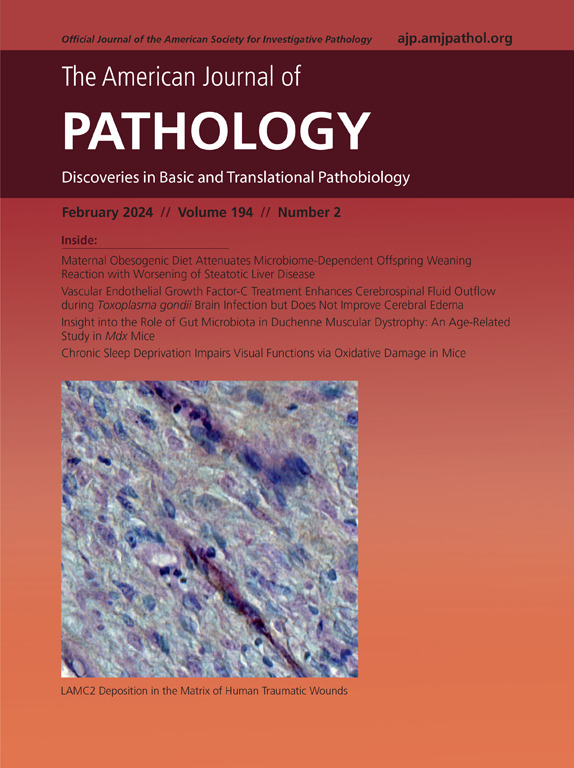衣原体与宿主相互作用中蛋白质翻译后修饰的新见解。
IF 3.6
2区 医学
Q1 PATHOLOGY
引用次数: 0
摘要
衣原体是人类和动物重大疾病的罪魁祸首,其感染过程涉及与宿主细胞的复杂相互作用。蛋白质翻译后修饰(PTMs)已成为理解衣原体与其宿主之间复杂相互作用的关键焦点。PTMs包括磷酸化、糖基化、泛素化、乙酰化和甲基化,在衣原体感染的关键过程中发挥关键作用,如细菌入侵、细胞内存活、免疫逃避和宿主信号通路的操纵。通过调节细菌和宿主蛋白,ptm是影响衣原体感染进展和结果的重要机制。这一不断发展的研究领域不仅加深了我们对衣原体致病策略的理解,而且为开发针对这些感染的靶向治疗干预开辟了新的途径。本文章由计算机程序翻译,如有差异,请以英文原文为准。
Emerging Insights into Protein Post-Translational Modifications in Chlamydia-Host Interactions
Chlamydia species are responsible for significant diseases in both humans and animals, with their infection processes involving complex interactions with host cells. Protein post-translational modifications (PTMs) have emerged as a critical focus in understanding the complex interplay between Chlamydia and its host. PTMs, including phosphorylation, glycosylation, ubiquitination, acetylation, and methylation, play pivotal roles in regulating key processes during Chlamydia infection, such as bacterial invasion, intracellular survival, immune evasion, and manipulation of host signaling pathways. By modulating both bacterial and host proteins, PTMs serve as essential mechanisms that shape the progression and outcome of Chlamydia infections. This growing area of research not only deepens the understanding of Chlamydia's pathogenic strategies but also opens new avenues for developing targeted therapeutic interventions against these infections.
求助全文
通过发布文献求助,成功后即可免费获取论文全文。
去求助
来源期刊
CiteScore
11.40
自引率
0.00%
发文量
178
审稿时长
30 days
期刊介绍:
The American Journal of Pathology, official journal of the American Society for Investigative Pathology, published by Elsevier, Inc., seeks high-quality original research reports, reviews, and commentaries related to the molecular and cellular basis of disease. The editors will consider basic, translational, and clinical investigations that directly address mechanisms of pathogenesis or provide a foundation for future mechanistic inquiries. Examples of such foundational investigations include data mining, identification of biomarkers, molecular pathology, and discovery research. Foundational studies that incorporate deep learning and artificial intelligence are also welcome. High priority is given to studies of human disease and relevant experimental models using molecular, cellular, and organismal approaches.

 求助内容:
求助内容: 应助结果提醒方式:
应助结果提醒方式:


